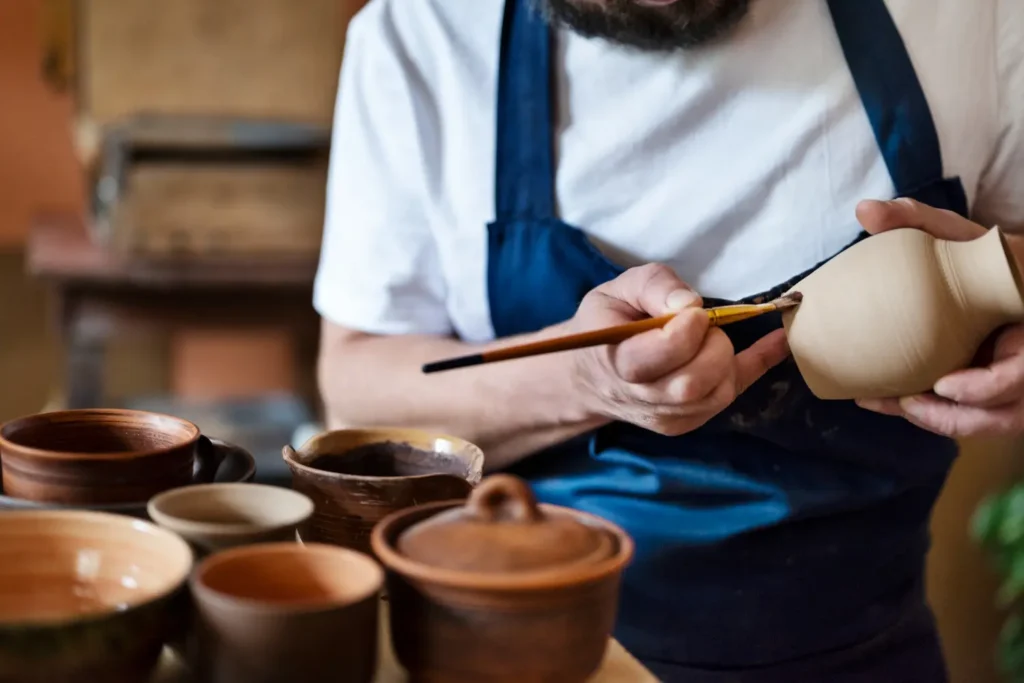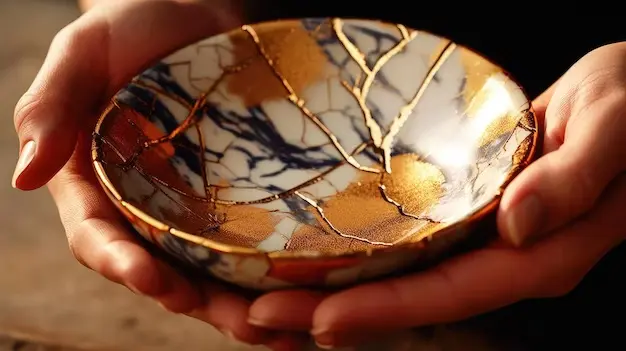Wabi-sabi is a Japanese aesthetic and philosophical concept that appreciates the beauty of imperfection, transience, and the natural cycle of growth and decay. It often finds its expression in various forms of art and everyday life. Here’s a simple story that illustrates the essence of wabi-sabi:
Once upon a time, in a small Japanese village, there lived an elderly potter named Satoru. He was known throughout the region for his exquisite tea bowls and pottery, each one unique and unpretentious. Satoru’s work embodied the wabi-sabi aesthetic, embracing the imperfections and simplicity of nature.

One day, a wealthy merchant from a distant city came to the village, seeking to purchase the finest tea bowl for his elaborate tea ceremonies. He had heard of Satoru’s reputation and was willing to pay a significant sum for the most perfect and flawless tea bowl.
Satoru welcomed the merchant into his humble studio and began showcasing his creations. The merchant examined each piece carefully, but he couldn’t help but notice the minor imperfections and irregularities in every bowl. He was accustomed to flawless, pristine items, and he expressed his disappointment to Satoru.
Satoru smiled and understood the merchant’s desire for perfection. He excused himself for a moment, and when he returned, he handed the merchant a plain, unadorned tea bowl with a subtle crack running down its side. The merchant was puzzled by this choice and asked why Satoru presented this seemingly imperfect bowl.
Satoru began to explain, “This tea bowl was created with the utmost care, and yet it’s not without flaws. Its imperfection, in the form of the crack, is a reminder of the transient nature of all things. Life is imperfect, and it is in these imperfections that we find the true beauty of existence. The wabi-sabi spirit tells us that beauty can be found in the imperfect, in the worn, and in the aging. Just as we age and accumulate scars and wrinkles, this tea bowl has its own unique story to tell.”

The merchant, after hearing Satoru’s wise words, realized the profound beauty of the tea bowl with the crack. He purchased it without hesitation, and it became the centerpiece of his tea ceremonies. Its imperfection added depth and character to the ceremonies, reminding everyone that life’s true beauty lies in embracing imperfections and transience.
This story illustrates how wabi-sabi encourages us to appreciate the beauty in imperfection, impermanence, and the simple, natural elements of life. It teaches us to find value in the flawed and the aging, rather than seeking perfection and constant novelty.
What’s your Wabi-Sabi story? Have you learned to accept and appreciate the beauty of the imperfections in your life and in those around you?




